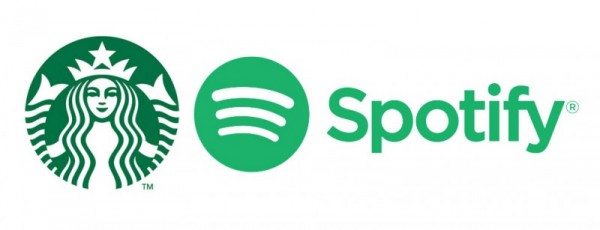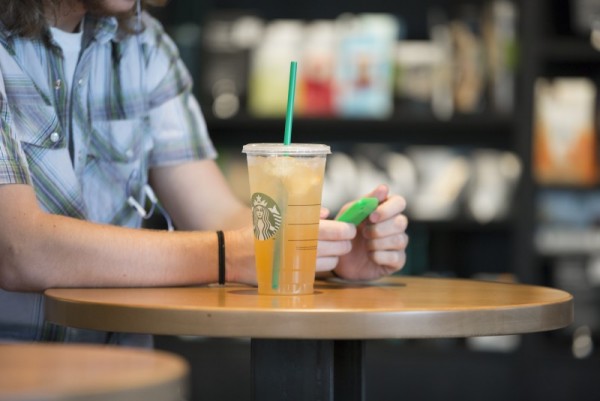Starbucks and Spotify are planning a multiyear partnership that will give Starbucks employees and rewards program customers access to in-store playlists. The program is expected to connect 7,000 Starbucks-operated stores in the U.S. and 10 million My Starbucks Rewards (MSR) loyalty members with Spotify’s more than 60 Million global users to offer what Starbucks is calling a “first-of-its-kind music ecosystem.”
Spotify CEO Daniel Ek says the partnership will essentially make baristas the in-store DJs.
The partnership comes just weeks after Starbucks stopped selling CDs at its registers. While yesterday’s public announcement made all kinds of claims about “third place” and the customer experience, Starbucks CEO Howard Schultz yesterday got to the heart of the matter in a conference call, saying:
“For many, many years, music has been a very significant part of the Starbucks experience.
The music in our stores gave us license over the years to be in the physical CD business and as many of you know that turned into a very, big and important business for Starbucks.”
This appears to be a win-win for Starbucks and Spotify in the “big and important business” of music. The big losers are musicians.
As a moonlighting musician myself, I’m going to show some bias here. Spotify has notoriously built its multibillion dollar business by grossly underpaying for licensed material. It was developed by Ek, who came to the project after being the young CEO of uTorrent, a BitTorrent client used in the piracy of music and movies. This is not someone who values source material.
Spotify has famously been criticized by Taylor Swift, whose label pulled all her material off Spotify in late 2014, and by Radiohead’s Thom York who described the service as “the last desperate fart of a dying corpse.”
By its own estimates, Spotify pays out $0.006 to $0.084 per song stream. As a publishing license-holding artist who is paid by Spotify on a monthly basis, I’ll tell you those numbers are grossly inaccurate, skewed way high. On March 17, for example, music to which I hold the rights was streamed on Spotify 24 times. The per-unit (song) payout for those streams ranged from a high of $0.006552 to a low of $0.0002730. The majority of the payouts were less than one one-hundredth of a cent. These are fairly typical numbers, in my case.
Granted, these royalty payments have come through a distributor, but that distributor takes only 9 percent of digital income, meaning the numbers above represent 91 percent of what Spotify paid. Most of them don’t begin to approach Spotify’s payout claims.
If you average payments from the past month and apply that to 1 million streams, the total payout would be less than $1,000. I’m not necessarily complaining — many music “artists” need a digital presence on places like Spotify to be heard at all — I’m merely trying to make a point about the perception of value, which is something we talk about in the coffee world every day.
Starbucks or Spotify is at least paying for the music that builds the ambience at its stores — the terms of the deal were not disclosed — which actually represents a step up from many cafes and restaurants that may simply be plugging into someone’s iTunes playlists.
But much like Starbucks claims 99 percent ethical sourcing of its coffees, Spotify routinely makes claims about its “contributions” to the music business through ethical sourcing of content. These are supply sustainability questions in separate but equally broken industries.
Nick Brown
Nick Brown is the editor of Daily Coffee News by Roast Magazine.
Comment
2 Comments
Comments are closed.








I liked it better when Starbucks baristas talked to me about race relations.
Hahaha And next week, the Starbucks “omgwerstillcoolright?” Campaign continues with the unveiling of the much awaited Starbucks footwear line. It is being said that the Star Stompers shoe design is the brain child of musical innovator and R&B pioneer, Justin Bieber SO YOU KNOWS THEY R SO FRESH AND COOL, JUST LIKE STARBUCKS IS.